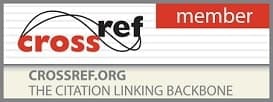- Printed Journal
- Indexed Journal
- Refereed Journal
- Peer Reviewed Journal
P-ISSN: 2394-1685 | E-ISSN: 2394-1693 | CODEN: IJPEJB
Impact Factor (RJIF): 5.38
2015, Vol. 1, Issue 6, Part B
Hasta Mudra’s and respiratory system
Author(s): Kuldeep Singh
Abstract:
The aim of present study was to find out some association between the gesture of hands with organs of circulatory system and also to get idea about that how different hand gestures improves the functioning of respiratory organs. Here we try to find out some hasta mudra which directly effects of circulatory system and also beneficial to overcome on many respiratory organs related diseases. Our hand contains about 100,000 nerves and each fingertip has about 3,000 nerve receptors, just under the surface of the skin. In the brain the hand takes up a very large proportion of the brain's cortex, and each area of the hand is linked to a different part of the brain. When we apply pressure to the fingers and hands, we stimulate related brain areas. So we use hasta mudras to activate pressure points, give messages to the body-mind energy system and change brain patterns. Here is a list of six common Hasta Mudra's which directly contribute in the improvement of our respiration. These hasta mudra’s are Pushan, Asthma, Bronchial, Varun, Uttarabodhi and Ling mudra. Regular 10 to 15 minutes practice of each mudra for one hour will give positive results on respiratory system i.e., bronchial tube dilation, open the area of lungs, remove caugh, avoid cold and also remove mucous congestion from the air passage. Because Mudras allow you to direct the developed awareness of the vital energy (prana) within your body. By using mudras in your yoga and meditation practice, you can facilitate healing, balance your energy levels, focus your mind, and deepen your meditation. Holding a mudra, or hand position, during an asana practice brings a powerful and profound steadiness and focus to your practice. You can even control your breath through mudras. The hand and finger positions of mudras or hand gestures make important connections in the nervous system and stimulate specific energy pathways (nadis). It is also said that mudras increase energy and blood circulation to different parts of the brain, to important nerve junctions and glands. Early yogis mapped out the hand areas and their associated reflexes which relate to the different areas of the body and brain.
Pages: 83-86 | 3278 Views 1502 Downloads
Download Full Article: Click Here

How to cite this article:
Kuldeep Singh. Hasta Mudra’s and respiratory system. Int J Phys Educ Sports Health 2015;1(6):83-86.








 Research Journals
Research Journals